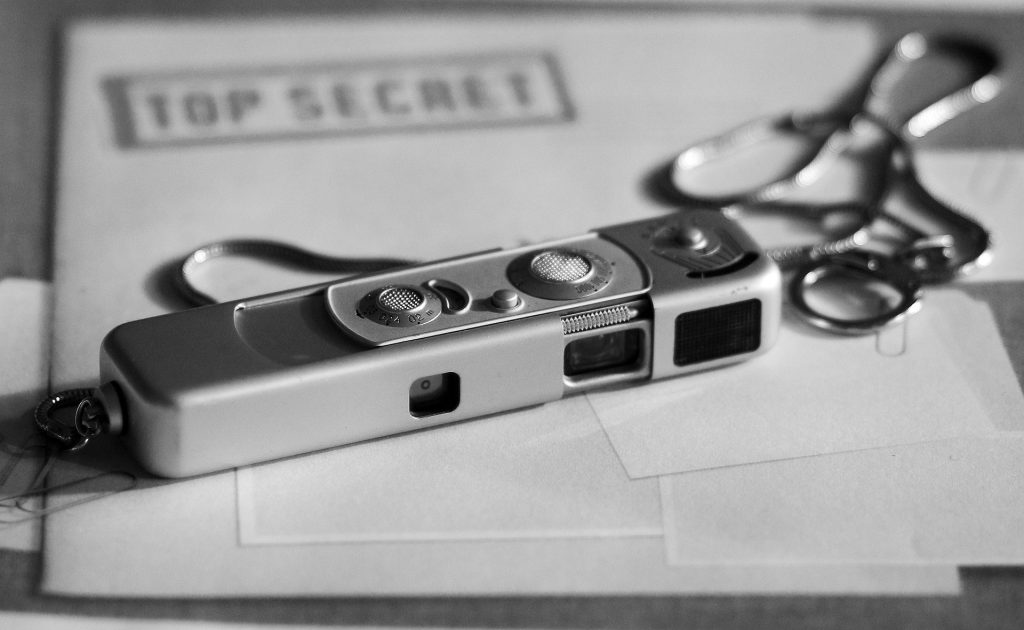Is my phone listening to me? Yes, and there could be other devices in your home that are listening as well. The question is – What can you do about it? How do you block listening devices?
How to block listening devices, a quick take:
- Use a noise blocker or white noise generator to block long-distance recording or hidden devices in your home.
- Use frequency scanners or infrared smartphone apps to find hidden cameras.
- Common sense is your greatest defense against spies. So do not share more than you need to.
How to block listening devices explained.
Ads-coinciding-with-conversations is a phenomenon that has happened to one too many smartphone users. At the core of it is the question, “is my phone listening to my conversations and using keywords to target ads?”
Officially android and IOS devices do not listen to your conversation because eavesdropping violates the user’s right to privacy. However, if reports by the Guardian and other news outlets, including Vice, are believed, contractors and AI developed by android and IOS listen to user conversations. How?
Do you have a digital voice assistant?
If you think not, you should know that smartphones feature a voice app that accesses your microphone. This allows manufacturers or contractors to listen to user conversations. In 2019, news came to light that Apple used SIRI to listen to user conversations for “training.”
However, your phone is not the only smart device in your home or office that might be listening to you. In 2015, James Clapper, the director of national intelligence, admitted that intelligence agencies might use appliances in your home, including cameras, thermostats, and other smart devices that can connect to the internet to listen to you.
Furthermore, hackers, spies, or even your partner may have listening devices in your home. The point is, anything that has a microphone or camera in it – has the potential to turn into a listening or recording device. So, it is not paranoia; people and bots are trying to listen to you.
How do you protect yourself?
How to block listening devices: In this digital world, the best way to start is by making your home, car, or office dumb.
Making your home “dumb” means getting rid of all appliances that may connect to the internet.
Do you need a smart fridge, thermometer, or coffee maker? If yes, position these items in rooms or sections where you do not have sensitive conversations. The problem with such devices is that they offer little or no protection from attackers. Think about it. If an attacker has access to your fridge’s camera or microphone, then that person has access to your home and conversations.
How many listening devices in your home are listening to you?
One key feature of smart homes is that all the connected smart devices are usually from the same manufacturer. For example, if you own a doorbell made by Apple, your cameras, sensors, thermostats, and sprinklers will probably be made by apple or affiliate companies. Since these devices are connected or on the same network, if someone accesses one, then that person may have a bridge into all your devices. For example, to listen to your conversations, all that person must do is find a way into a device that has a camera or microphone.
For example, to you, a Smart Tv is just a TV, but to a hacker, that TV is a node on a network. To gain access to the TV, the hacker may use a modified infrared transceiver connected to a computer to send commands to the TV. They may also use Bluetooth.
Another option is to connect to your devices via your WIFI.
How to block listening devices in your home
How can I find listening devices in my home?
Step 1: Identify the threat

If you have a suspicion that someone is listening to you, put yourself in the person’s shoes and ask, what is the easiest way to gain access to your devices? If it is the government or intelligence agencies, there could be bugs or microphones hidden in your electronics. The same is true if someone has access to the home or office.
If the person does not have access to the home, the attack will likely be mobile.
To block listening devices that are outside your home you should.
Purchase an audio jammer or anti-spy bug detector
The person you are dating, a former spouse, or a stalker may install bugs in your home or office. The easiest way to find out if there is a listening device in the house is to purchase a bug detector. It doesn’t need to be the fanciest model, but you will want to make sure that you are able to find both RF and magnetic fields. Something like this will work just fine. This device will find hidden cameras and audio recorders. It scans for RF signals, magnetic fields, and camera lasers.
How do I find hidden audio devices?
Using the device linked above. Sweep your room, car, or office for RF signals, magnetic fields, or cameras.
A low-tech solution is to take everything apart, but that is tedious and may lead to property damage without finding the devices.
How do I find a hidden microphone?
Most microphones on the market are FM modulated and have a bandwidth of 20KHZ up to 200KHZ or more. To detect these signals, you will need an FFT device. FFT devices scan for microphone signals and can thus make it easier to find hidden mics in your home or car.
Step 2: Follow the cables or use a smartphone

Listening devices in your home or car usually require a power source. Because of that, the device is likely connected to a power source. Therefore, with the help of an electrician, you should check all the wires in your home and appliances. The idea is to look for items that do not “fit in.”
We recommend working with an electrician or cyber security expert because you may damage expensive appliances if you lack experience identifying bugs, hidden cameras, and other spy equipment.
Tips:
- Check your router, appliances, and flag all unfamiliar objects. If unsure of what a device is, seek a second opinion.
- Look for hotspots or Wi-Fi signals that have a strong connection inside or outside your home.
- When scanning, turn off all wireless devices, including your phone, TV, and other smart devices.
Is there an app to detect hidden cameras?
There are infrared and IR scanner apps on both the Android and IOS stores. You may download and use such apps to look for hidden cameras in your home, bathroom, or car. Note that these will only work to find cameras and not microphones.
How do I block out listening devices?
A suspicious van on your block, odd neighbours, suspicious individuals passing by your home at odd hours are some signs that you or your home is under surveillance. Also, be careful with who you allow into your home; for instance, if someone shows up at your door promising disaster relief, security system inspection, home inspection, repairs, and so on, do not let the person in. if you allow a stranger to enter your home, keep an eye on them.
That said.
There are ways to eavesdrop on conversations without being in the room or home.
On Amazon and sites like it, there are portable listening devices that spies can use to listen to voices and sounds from up to 30 feet or more. So the question is, how do you block listening devices that are outside your home or area of influence?
Some devices require the spy to hide a transmitter in the home, and some require the user to point it in the right direction. To counter the former, follow the instructions above.
Audio jammer and acoustic noise generators
If you suspect someone is listening to your conversations, you should invest in an acoustic noise generators or voice jammers. These devices are designed to interfere with microphones’ recording and listening capabilities by releasing white noise.
When turned on, white noise masks your voice -making recorders virtually useless. Instead, the person on the other end will hear a hissing sound or white noise. You have the option to invest in a larger home or office version, or a portable version that you can take anywhere.
Step 3: Learn how to protect yourself from surveillance

Changing technologies means that spies, hackers, big tech companies, advertisers, and the government do not only rely on audio recording devices to gather information about an individual.
They are also going through your online searches, your friends’ list, shopping habits, the apps you use, and so on. Because of that, common sense is the ultimate protection from surveillance. What do I mean?
- Do you read privacy agreements when installing new apps on your phone or when you purchase a new phone?
- Are your chats encrypted?
- What personal information can an individual gather by going through your social media accounts?
- Are your real names and real home addresses available to the public?
Not taking personal security seriously makes you an easy target for surveillance, for example, if I find your home address on social media and you repeatedly post your location. I can easily tell when you are at home and when you are not. This creates opportunities.
Use encrypted chat apps to send sensitive communications
The law allows law enforcement agencies to monitor social networks, SMS, and emails. That means if you are under surveillance, using SMS is ill-advised. Instead, used encrypted apps such as telegram because the communications are by design harder to intercept.
Use a VPN or use Private Browsing
We have an article explaining how and why you should use VPNs, so give that a quick read once you are done here.
In short, what you need to remember is that VPNs mask your identity and activity, making it difficult for service providers and advertisers to collect information that they might use to target ads. Also, private browsing and VPNs do not record search histories.
Is it true that Google/Alexa/Siri is always listening to you?
Probably. If you use a browser like chrome, you will notice a microphone logo next to the search icon. To keep that microphone from recording on your phone or computer, go to the settings and disable audio monitoring.
How to block listening devices: your phone
The easiest way to record a conversation without being in the room is to turn on the recorder on your phone, then leave the room. This usually happens when people who do not trust each other share the same space. So, if you notice a phone that has no business being in the room, it could be a listening device.
How do you block listening devices? Summary
- Identify the threat and react in a befitting manner. For example, if the listener is an ad company, check your device’s permissions, disable what you must, and use a VPN. Whereas if it is the government or spies, regularly scan your home, office, or car for listening devices.
- Follow the cables and examine your devices and appliances.
- Invest in acoustic noise generators or audio jammers.
- Use common sense: do not share more than you need to, be it in public or on social media.
